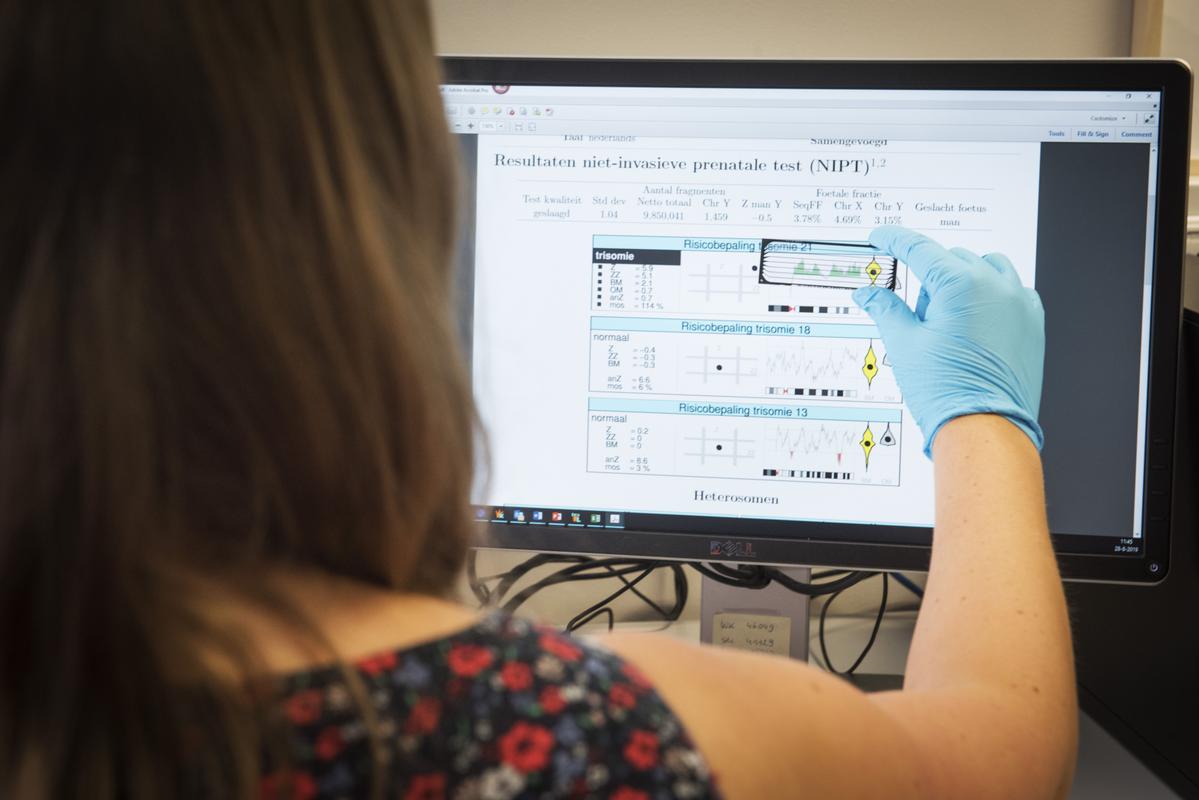Genome wide test
The blood of a pregnant woman contains not only her own DNA but also fragments of the baby’s genetic material. More than 80% of pregnant women now opt to give a blood sample and have a non-invasive prenatal test (NIPT). The test is primarily intended to trace major chromosomal abnormalities in the baby’s DNA, because they can lead to serious disorders such as Down’s syndrome (trisomy 21).
The Centre for Human Genetics (CME) is one of eight medical genetics centres in Belgium. All of them apply an extensive, genome wide version of the NIPT, which examines all DNA fragments in the sample. This way not only can the three major, viable chromosomal abnormalities (trisomy 21, 18 and 13) be traced, but also other genetic defects in both the baby and the mother.
16 abnormalities in 26,123 tests
The NIPT test has been reimbursed by health insurance funds in Belgium since 1 July 2017. In the twelve month period following the introduction of reimbursement CME conducted a total of 26,123 NIPT analyses. These tests were all included in a study into potentially relevant additional results. “We are the first centre in the world to also examine a specific gene, the DMD gene, in the mother’s DNA via a NIPT test,” explained Professor Dr. Koen Devriendt, clinical geneticist at UZ Leuven. Faults in this gene can cause Duchenne muscular dystrophy (DMD), a serious congenital and gender related muscular disorder. It mainly occurs in boys who have inherited the damaged gene from their mother.
We're the first centre in the world to also examine a specific gene, the DMD-gene, in the mother's DNA via the NIPT.Prof. dr. Koen Devriendt - clinical geneticist, centre for human genetics
16 of the 26,123 samples showed abnormalities in the DMD gene and 10 of these were shown to be related to a damaging abnormality. “This number is in line with expectations, as Duchenne muscular dystrophy occurs in 1 in 5,000 boys,” Kris Van Den Bogaert, clinical laboratory geneticist at CME and lead researcher for the study, affirmed.
Other random findings
The study is part of a major CME project, which also focuses on various additional possible benefits of the NIPT test. For example, it was discovered a few years ago that the test can also detect cancer in the mother. Furthermore, the NIPT test can provide useful information concerning abnormalities that might affect the progress of the pregnancy or delivery.
Professor Devriendt: “Few other countries devote as much attention to these rare additional findings as we do, mainly due to the fact that we have a distinct ethical framework for this: all genetics centres are members of the Belgische Vereniging voor Menselijke Genetica (Belgian Human Genetics Association). They observe the same guidelines in terms of which findings are medically relevant and should be conveyed to the people involved. Genetic counselling and any necessary multi-discipline follow-up are always available.”

